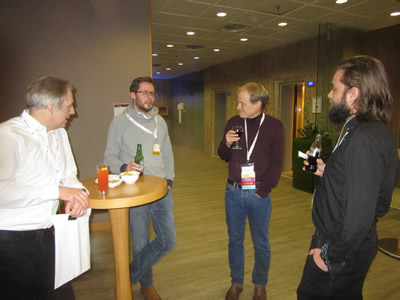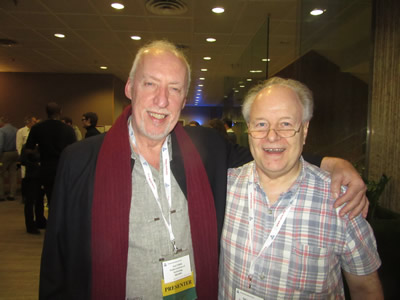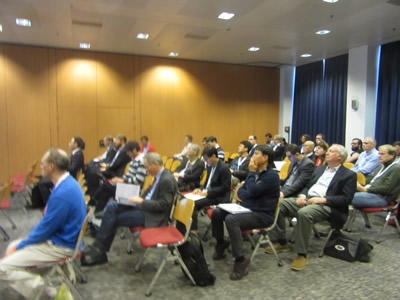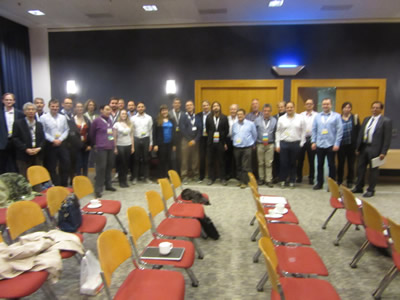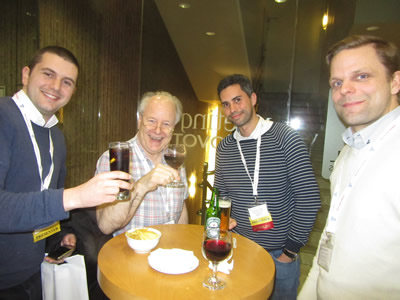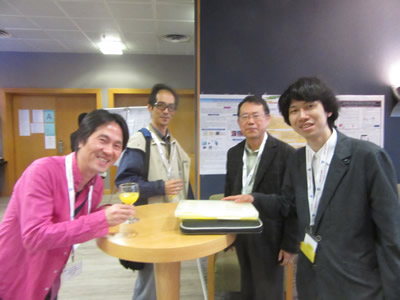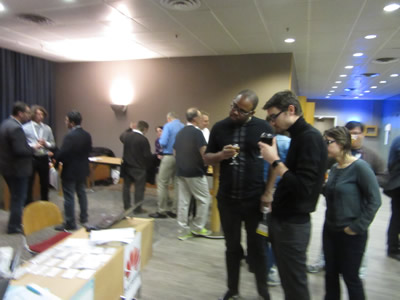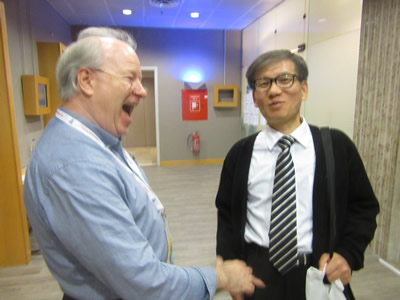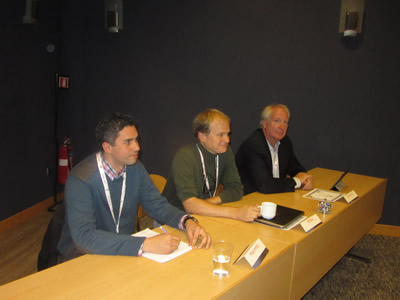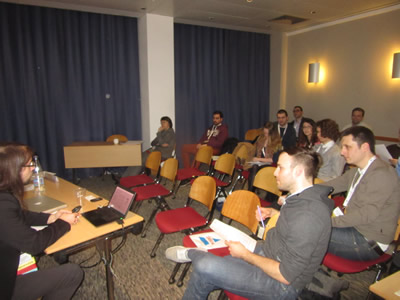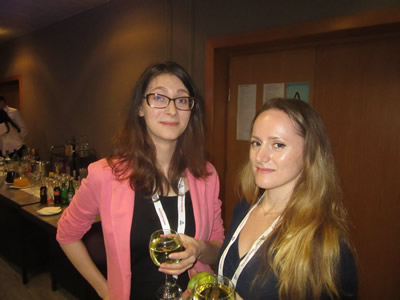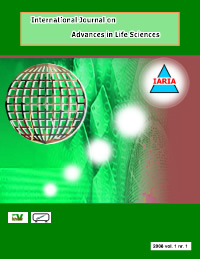SMART ACCESSIBILITY 2019 - The Fourth International Conference on Universal Accessibility in the Internet of Things and Smart Environments
February 24, 2019 - February 28, 2019
SMART ACCESSIBILITY 2019
ISSN: 2519-8378
ISBN: 978-1-61208-692-7
SMART ACCESSIBILITY 2019 is colocated with the following events as part of DigitalWorld 2019 Congress:
- ICDS 2019, The Thirteenth International Conference on Digital Society and eGovernments
- ACHI 2019, The Twelfth International Conference on Advances in Computer-Human Interactions
- GEOProcessing 2019, The Eleventh International Conference on Advanced Geographic Information Systems, Applications, and Services
- eTELEMED 2019, The Eleventh International Conference on eHealth, Telemedicine, and Social Medicine
- eLmL 2019, The Eleventh International Conference on Mobile, Hybrid, and On-line Learning
- eKNOW 2019, The Eleventh International Conference on Information, Process, and Knowledge Management
- ALLSENSORS 2019, The Fourth International Conference on Advances in Sensors, Actuators, Metering and Sensing
- SMART ACCESSIBILITY 2019, The Fourth International Conference on Universal Accessibility in the Internet of Things and Smart Environments
SMART ACCESSIBILITY 2019 conference tracks:
Accessibility by design – fundamentals of inclusive design
Accessibility across the entire system lifecycle; Inclusive design of smart cities, smart buildings and smart environments; Universal design of welfare and everyday technology; Inclusive design approaches, techniques, and tools for inclusive design; Adaptation and personalization - Design for one vs. Design for all; Accessible and privacy preserving identity management and authentication; Multimodality and accessibility; Accessibility, Adaptivity and Design for all in Standardization; User-centric and participatory design; Universal usability; Accessibility and human-computer interaction
Accessibility and digital inclusion
Technology for independent living; Accessibility within e-organizations: Smart and inclusive work spaces; Inclusive working life; Good practices and experiences; Web and Internet accessibility for digital inclusion; Universally designed apps; Citizen services, e-government accessibility e-inclusion; Availability and affordability for everyone; Cognitive and behavioral psychology of end-user; Experiences and scenarios
Interaction-driven accessibility
Interaction patterns in smart environments; New interaction methods and modalities; Smart textiles and surfaces; Brain-Computer Interfaces; Universally accessible graphical and haptic design; Accessible touchscreens; Translation between modalities; Transcribing across the senses; Dynamic visualization; Images for visually impaired users; 3D printable accessible tactile pictures and images; Gestural interfaces; Automatic speech recognition; Visualizing phonemic information; Accessibility-oriented appliance displays; Fabric-based interactive surfaces; Tactile and visual feedback; Sonification techniques; Web datasets as accessible tables; Haptic screen interfaces; Accessible Web browsing
Internet of Things frameworks and accessibility
Personalization adaptation and accessibility functions of standard and specialized Internet of Things platforms; Enabling personalization while keeping privacy; Assistive technologies and interoperability
Assistive applications in Internet of Things scenarios
Independent navigation systems; Mobility for all; Spatial orientation systems; Universally accessible games; Ludology and narratology frameworks; Technologies for engaging various cultural heritages; Accessible multimedia systems; Games for rehabilitation; Voting systems for impaired people; Personal sensing of accessibility maps
Accessibility testing
Criteria and procedures for automated accessibility testing of intelligent user interfaces and Smart Environments; Design guidelines for accessible Internet of Things Applications and services; Use cases and test environments; Experiences, empirical studies on assistive technology scenarios in smart living labs and field tests; Opportunities and challenges of smart environments and the Internet of things for people with disabilities and older people
Accessibility devices and applications
Accessibility portable smart devices; Smartphone and tablet use; Smartphones for elders; Accessibility for Android; Web and mobile platforms; Smart wheelchairs; Smartphones for blind users; Haptic Gloves; Zebra-crossing spotter; Assistive attachments to prosthetic devices; Google glasses; Digital and tactile drawing systems; Accessible media players; Smartwatch for deaf people; Vibro-tactile feedback devices; Drones for navigating visually impaired; Accessible graphing calculator; Assistive mobile apps; Smartphone reminder apps; Mobile phone apps for sign languages; Apps for perception of spaces; Brain Computer Interaction for motor impaired people; Tools for rehabilitation of individuals with brain injury; Interactive and collaborative map for of the visually impaired; Customized 3D-printable tactile maps; Spatial databases for blind travelers; TeX-to-Braille transcribing
Accessibility-oriented e-learning and cognitive training
Computational accessibility environments; Accessible online education; Disabled students' accessibility; Quality of e-learning systems; Supporting bilingual literacy of deaf children, Accessible mobile-learning; Augmented reality tools; e-Testing with interactive images; Audiovisual translation; Mental model construction in blind learners; Educational games for children; Teaching preschoolers with autism; Accessible texts for autism; 3D printing for integrated classrooms; Sensory substitution training; Classes for deaf and hard-of-hearing students; Online courses for intellectually disability students; Teaching accessibility
Social accessibility services
Industry and research collaboration; Learning from practice and technology transfer; Assisting neurodiverse employees; Inclusive and productive technical workforce; Accessibility research; Mentoring people with disabilities; Participating users with mental and cognitive disabilities; Support for cognitively impaired workers; Personal health records for senior healthcare; Accessible mobile biometrics for elderly; Acceptability and accessibility of wearable computing; Accessible services for functional diversity; Performance-impaired people in manual assembly processes; Vocational prompting systems for people with cognitive impairments; Calendars for individuals with cognitive disabilities; Online banking systems for cognitively disable people; School inclusion process; Assistive technology for blind grocery shoppers; Conversational assistive systems; Assistive services for special diseases (Parkinson, Alzheimer, Autism)
Deadlines:
Submission | Nov 13, 2018 |
Notification | Dec 13, 2018 |
Registration | Dec 27, 2018 |
Camera ready | Jan 10, 2019 |
Deadlines differ for special tracks. Please consult the conference home page for special tracks Call for Papers (if any).
